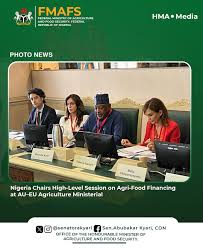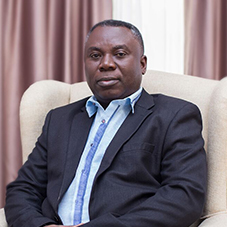Nigeria’s Minister of Agriculture and Food Security, Sen. Abubakar Kyari, has called for bold reforms in agricultural financing across Africa, urging partners to prioritise smallholder agribusinesses and bridge the funding gap that hinders food production on the continent. Kyari made the remarks while chairing a high-level session on Agri-Food Financing at the AU-EU Agriculture Ministerial held in Rome.
In his address, Kyari drew global attention to the paradox facing African agriculture. “Africa holds 65 percent of the world’s uncultivated arable land, yet our small agribusinesses growing the food receive less than 10 percent of available financing. That’s not just an economic gap; it’s a human one,” he stated.
He illustrated the realities on the ground, pointing to rural women and youth who struggle to access credit to grow their agribusinesses. “It’s the rural woman who can’t scale her business. The young farmer turned away at the bank. We must change this,” Kyari said, stressing the urgency of equitable finance distribution.
The Minister called for finance models that specifically target the “missing middle” of agriculture, small and medium enterprises such as processors, storage companies, and logistics firms. He also advocated for strengthening rural financial systems through improved rural banks, cooperatives, and agricultural insurance schemes. According to him, effective financing must be practical and rooted in local realities.
Kyari promoted blended finance approaches, highlighting their potential to unlock private investment while remaining sensitive to community needs. “We need finance that reflects real-life local needs. These are not one-size-fits-all models,” he said.
He referenced existing successful initiatives such as the LIFE-ND and Value Chain Development Programmes, stressing that they represent more than just development aid. “These efforts aren’t charity they’re partnerships. And if we truly want to go far, we must go together,” he concluded.
The session highlighted Nigeria’s growing influence in shaping agricultural transformation across Africa. Kyari’s call is expected to influence further discussions on sustainable agri-finance frameworks that work for African farmers and food systems.










